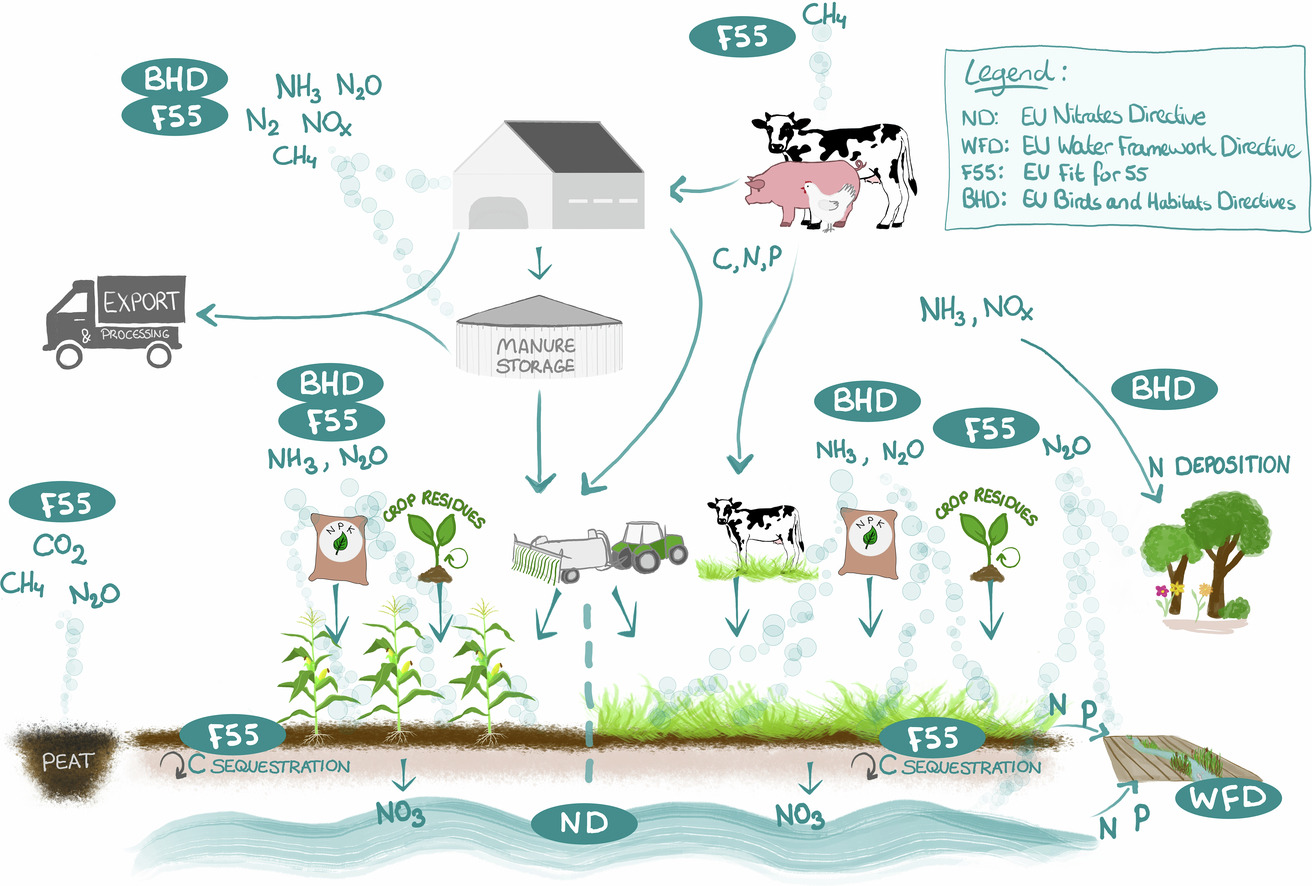Agriculture suffers from colossal waste of nitrogen that wreaks havoc on nature
CREAF researcher Estela Romero has written an editorial in the journal Science of the Total Environment in which she concludes that the massive use of nitrogen in agricultural fertilizers has led to an increase in agricultural yields, but also to an inefficient system that loses almost 80% of these nitrogen inputs. According to the authors, this is a colossal waste of resources with many negative impacts, for example, excess nutrients to water - leading to eutrophication and oxygen loss and threatening aquatic organisms and water quality - the same excess nutrients to land - leading to soil acidification and atmospheric pollution, emitting greenhouse gases, and exacerbating global warming.
There are options such as changes in eating habits, improved agricultural management and circularity practices that can guarantee food security within safe and fair planetary limits
The editorial heads a special issue coordinated by the researcher that brings together impacts and solutions that science has studied and calls for the urgent implementation of strategies and policies that make compatible the need to feed a growing world population without compromising the health of ecosystems. In this sense, Romero and the rest of the authors recommend accompanying producers to change their negative point of view on the subject and compiles possible solutions, such as the potential of agroecology or methods to recover nitrogen from urban wastewater, and concludes that science has made considerable progress and that there are options such as changes in eating habits, improved agricultural management and circularity practices that can guarantee food security within safe and fair planetary limits.
Effective solutions
This editorial presents a compilation of scientific papers that seek solutions to this problem, including the challenge of halving N losses by 2030. For example, studies agree that the transition to agroecological practices is a firm bet that leads to win-win situations for both ecosystem health and human health.

“Studies show that a shift towards organic crop rotations, the reconnection between agriculture and livestock farming, and fewer animal products, can reduce current reactive nitrogen emissions into the environment by half, while increasing food self-sufficiency in Europe”.
ESTELA ROMERO, CREAF researcher and first author of the study.
They also support the implementation of the ‘Farm to Fork’ measures proposed by the European Union. These measures can lead to a 40% reduction in the use of synthetic fertilisers, and animal feed imported into Europe, and a 30% reduction in environmental nitrogen losses, “although they are less effective than the agroecological transition in terms of greenhouse gas emissions and do not achieve the objective of cutting N losses by half”, says Romero.
The articles discuss the measures needed to reach this milestone, and the results suggest that circular systems should be encouraged, for example by using the nitrogen contained in urban wastewater to irrigate fields and green spaces in peri-urban areas, or by reconnecting agriculture and livestock farming. Some are also looking at the effectiveness of nature-based solutions - in this case, planting vegetation in irrigation canals - to retain nitrogen and prevent pollution of rivers and aquifers.

In any case, the solutions require the active and determined participation of all the actors involved: producers (farmers and livestock breeders), but also consumers, because our consumption choices are decisive in reshaping the structure of agri-food systems on a large scale. Reducing animal protein intake, prioritising organic food and reducing food waste are key levers to curb nitrogen losses within everyone's reach.
However, from a social science point of view, studies show that producers still disagree a lot on these measures and need more knowledge and support to balance crop and livestock production and make the transition to sustainable systems. “That is why from the scientific point of view we propose to approve stricter policies, but to seek constructive ways and to accompany them with aid or incentives so that they are socially acceptable”, Romero concludes.
Reference article: Romero E. et al. Nitrogen in agri-food systems and the environment: Next steps to a sustainable future. Science of The Total Environment (2024). https://doi.org/10.1016/j.scitotenv.2024.174555







